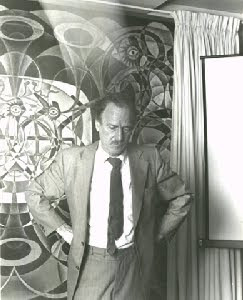...Understanding Media, first published in 1964, focuses on the media effects that permeate society and culture, but McLuhan’s starting point is always the individual, because he defines media as technological extensions of the body. As a result, McLuhan often puts his inquiry and his conclusions in terms of the ratio between the physical senses (the extent to which we depend on them relative to each other) and the consequences of modifications to that ratio. This invariably entails a psychological dimension. Thus, the invention of the alphabet and the resulting intensification of the visual sense in the communication process gave sight priority over hearing, but the effect was so powerful that it went beyond communication through language to reshape literate society’s conception and use of space....
... McLuhan wrote with no knowledge of galvanic skin response technology, terminal node controllers, or the Apple Newton. He might not have been able even to imagine what a biomouse is. But he pointed the way to understanding all of these, not in themselves, but in their relation to each other, to older technologies, and above all in relation to ourselves—our bodies, our physical senses, our psychic balance. When he published Understanding Media in 1964, he was disturbed about mankind’s shuffling toward the twenty-first century in the shackles of nineteenth century perceptions. He might be no less disturbed today. And he would continue to issue the challenge that confronts the reader at every page of his writings to cast off those shackles.
—by Terrence Gordon, July, 2002
Marshall McLuhan
July 21, 1911-December 31, 1980
--------------------------------------------------------------------
Born Herbert Marshall McLuhan in Edmonton, Alberta, Canada. McLuhan was a leading voice in the interdiscplinary field of media ecology. He coined the controversial phrases "the medium is the massage" and the "global village" to probe into the cultural shifts caused by the electronic revolution, focusing mainly upon TV. McLuhan held several degrees in English, including a PhD. He taught at several colleges and universities throughout Canada and the United States and was highly sought after by both religious and world leaders as well as major corporations for his insights. He was the receipient of many honorary Literary degrees and awards in Cutural and Communications studies. While he had many detractors, his influence is still recognized by media ecologists and in the formatting of popular reality TV shows today.
McLuhan married (elopement) Corinne Lewis naive of Fort Worth, Texas, in 1939. Together they had six children.
McLuhan's The Gutenberg Galaxy: (click here) The Making of Typographic Man (written in 1961, first published in Canada by University of Toronto Press in 1962) is a pioneering study of print culture, a pioneering study in cultural studies, and a pioneering study in media ecology.

